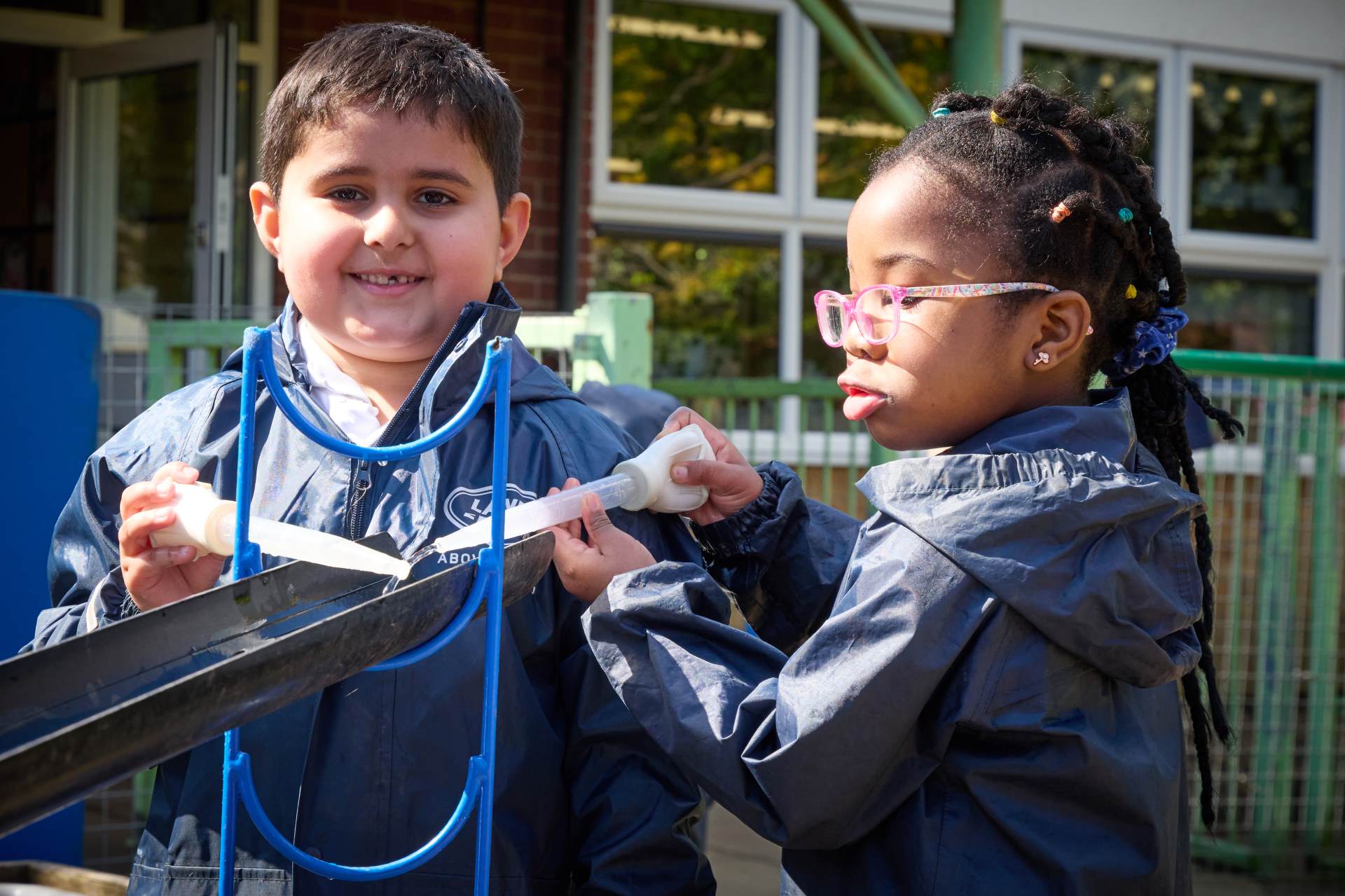Science

We progressively build scientific knowledge, skills and understanding. There is a highly interactive learning environment. This quality teaching and quality communication drives our learning. We work within and beyond our community to build on our scientific knowledge.
Science in FS1
In Nursery, Science is covered by Understanding of the World, People &Communities and Health &Self-care.
Our Nursery children enjoy looking at similarities and differences as well as going on nature walks to observe the changes in the world around them. Nursery children are also given opportunities to engage in practical investigations where they can comment and ask questions which support their development in communication and language.
Science in FS2
In F2, Science is a key feature within Understanding the World. Through both child-initiated play and adult-led activities, children are supported to develop a good understanding of the natural world around them. They are given the opportunity to explore and investigate within their immediate environment and will begin to discover more about environments that are very different to their own. Children will learn about the four seasons; will make observations of plants and animals; will grow their own plants and will gain first hand experience of the lifecycle of an animal. They will take part in simple investigations to help learn more about materials and their properties, including exploring changing states of matter, such as freezing and melting.
Year 1
In Year 1 this year, we will be covering everyday materials, animals including humans, seasonal changes and plants. Throughout the year, children will develop their scientific skills by using different types of scientific enquiry to answer questions including; observing changes over a period of time, noticing patterns, grouping & classifying and carrying out simple tests. Our aim is to provide opportunities that will spark children’s interest and develop their scientific knowledge and understanding about the world we live in.
Year 2
In Science, during Year 2, we learn about; everyday materials, animals including humans, plants and living things & thier habitats. Throughout the year the children will be learning how to work scientifically. The children will ask simple questions and understand that these questions can be answered in different ways. They will compare and sort materials by their properties, and animals by their habitats. We conduct simple tests using equipment to make measurements whilst gathering and recording data in different ways. We teach the children the skills they need to make first -hand observations and record these using their skills in scientific enquiry
Year 3
In Year 3, we will cover rocks, forces & magnets, light, animals including humans and plants. The children will be given opportunities to use their scientific skills to answer questions that they may have around the unit. They will plan and set up fair tests; learn ways to observe and research; record patterns using simple scientifc language and identify and classify in a variety of ways to help in answering questions. These skills will support the children's progress in science and allow them to find out answers for themselves through a range of investigations. Our aim is for the children to begin to become independent scientists who are more competent in discussing ways of testing their ideas.
Year 4
In Year 4 we will be covering animals including humans, states of matter, sound, electricity and living things and their habitats. The children will not only cover the requirements for each unit but explore answers to their own questions. The children will plan their own observations and experiments and will take part in a variety of prediction and results recording techniques. The children will be encouraged to develop their scientific vocabulary and to work scientifically using 'fair testing'. Our aim is to develop the children's curiosity and confidence in doing science.
Year 5
In Year 5, the children learn about space, lifecycles of animals and humans, changes of materials and forces. Over the course of the year, they will take measurements using a range of scientific equipment; record data and results of increasing complexity, use test results to make predictions and report and present findings from enquiries. They will also identify scientific evidence that has been used to support or refute ideas or arguments.
Year 6
In Year 6 we cover five key science topics: light, animals including humans, evolution and inheritance, electricity and finally classifying animals. We will be using our science experiences to: explore ideas and raise different kinds of questions; select and plan the most appropriate type of scientific enquiry to use to answer scientific questions; recognise when and how to set up comparative and fair tests and explain which variables need to be controlled and why. Alongside this we will also use and develop keys and other information records to identify, classify and describe living things and identify patterns that might be found in the natural environment.



